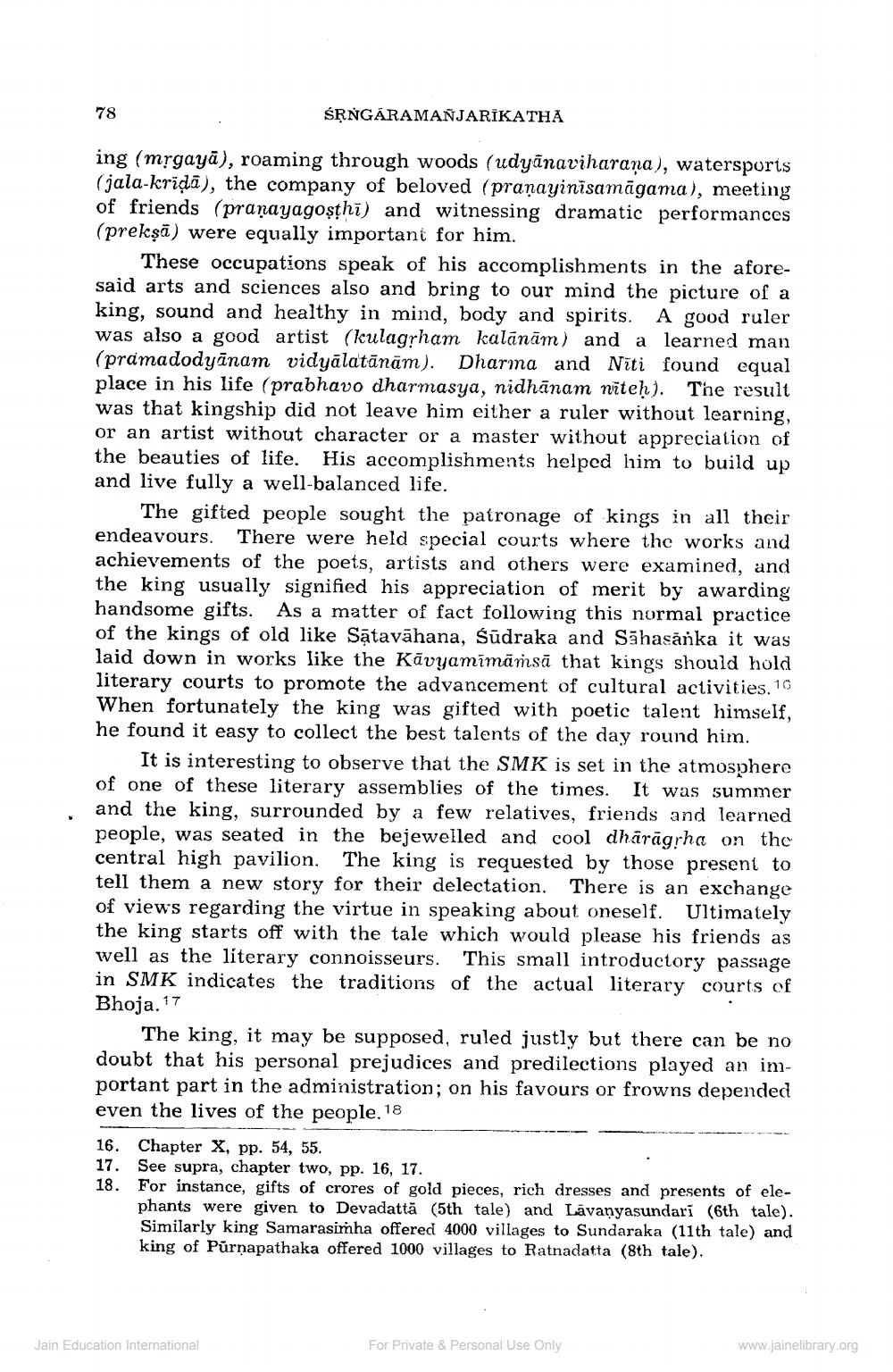________________
78
ŚRNGARAMANJARIKATHA
ing (mrgayā), roaming through woods (udyānaviharaña), watersports (jala-krīdā), the company of beloved (praņayinisamāgama), meeting of friends (pranayagoșthi) and witnessing dramatic performances (preksā) were equally important for him.
These occupations speak of his accomplishments in the aforesaid arts and sciences also and bring to our mind the picture of a king, sound and healthy in mind, body and spirits. A good ruler was also a good artist (kulagrham kalānām) and a learned man (pramadodyānam vidyālatānām). Dharma and Niti found equal place in his life (prabhavo dharmasya, nidhanam niteh). The result was that kingship did not leave him either a ruler without learning, or an artist without character or a master without appreciation of the beauties of life. His accomplishments helped him to build up and live fully a well-balanced life.
The gifted people sought the patronage of kings in all their endeavours. There were held special courts where the works and achievements of the poets, artists and others were examined, and the king usually signified his appreciation of merit by awarding handsome gifts. As a matter of fact following this normal practice of the kings of old like Satavāhana, Śūdraka and Sahasănka it was laid down in works like the Kāvyamīmāmsā that kings should hold literary courts to promote the advancement of cultural activities. 10 When fortunately the king was gifted with poetic talent himself, he found it easy to collect the best talents of the day round him.
It is interesting to observe that the SMK is set in the atmosphere of one of these literary assemblies of the times. It was summer and the king, surrounded by a few relatives, friends and learned people, was seated in the bejewelled and cool dhārāgrha on the central high pavilion. The king is requested by those present to tell them a new story for their delectation. There is an exchange of views regarding the virtue in speaking about oneself. Ultimately the king starts off with the tale which would please his friends as well as the literary connoisseurs. This small introductory passage in SMK indicates the traditions of the actual literary courts of Bhoja. 17
The king, it may be supposed, ruled justly but there can be no doubt that his personal prejudices and predilections played an important part in the administration; on his favours or frowns depended even the lives of the people. 18
16. Chapter X, pp. 54, 55. 17. See supra, chapter two, pp. 16, 17. 18. For instance, gifts of crores of gold pieces, rich dresses and presents of ele
phants were given to Devadattă (5th tale) and Lavanyasundari (6th tale). Similarly king Samarasimha offered 4000 villages to Sundaraka (11th tale) and king of Půrnapathaka offered 1000 villages to Ratnadatta (8th tale).
Jain Education International
For Private & Personal Use Only
www.jainelibrary.org




